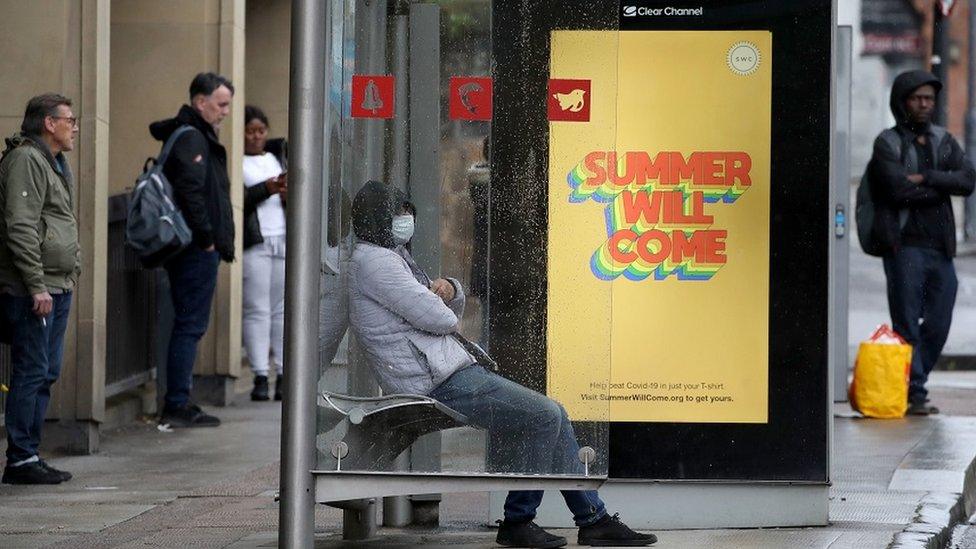Coronavirus in Scotland: Your questions answered on holidays
- Published
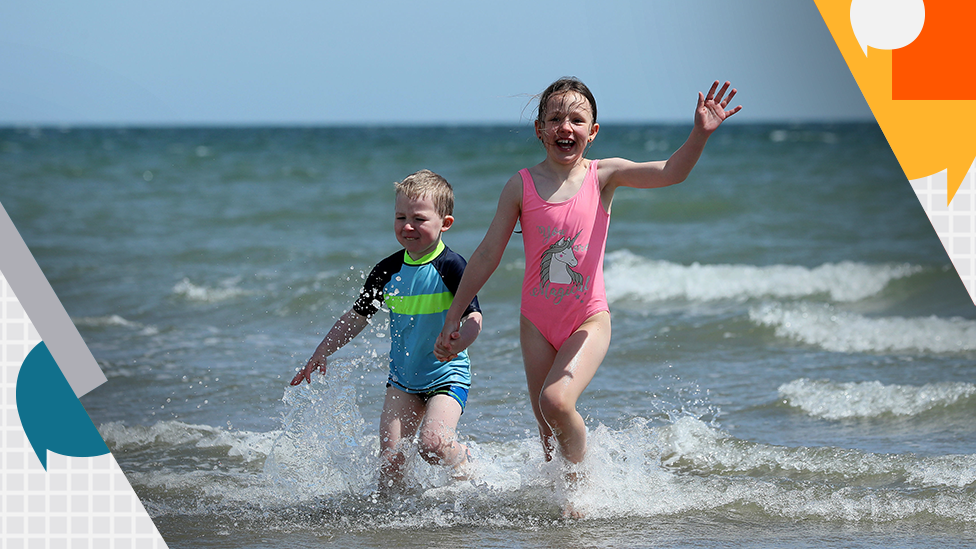
With the summer holidays approaching, we've received hundreds of questions about what coronavirus means for your travel plans.
Here are the answers to some of the most frequently asked questions.
When will it be possible to travel abroad again? Which countries in Europe would we be allowed to visit first? Arantza Belmonte, Edinburgh
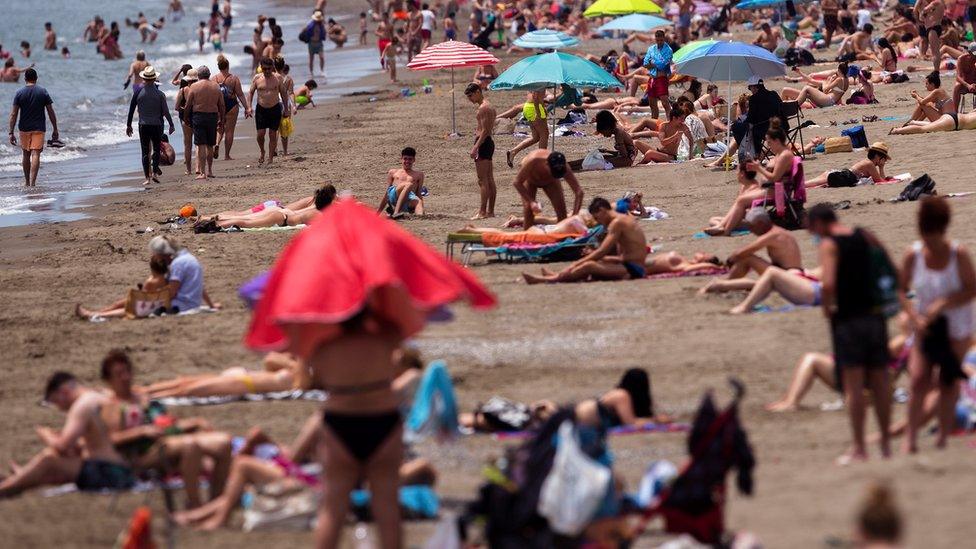
Spain is "gradually" opening up its tourism industry
At this point it's not something you can put a date on. The Foreign Office says that it continues to advise British nationals against all but essential international travel, external, and to return home from abroad if possible.
But this position is under continuous review and it says it will relax the advice as soon as it is safe to do so.
For now, many airlines are running a reduced service, or have suspended all flights. But EasyJet plans to resume some flights this month, while Ryanair and British Airways plan to ramp up their flights in July. All Tui and First Choice holidays are cancelled until at least 11 June.
However, the EU has insisted there will be a summer season this year - even if it comes with limitations and safety measures.
Greek airports are expected to allow flights from the UK again from 1 July.
Portugal has said visitors from the UK will be "most welcome" this summer, with flights resuming to the Algarve region's international airport, Faro, from the UK and Ireland.
But the French government says from 8 June people arriving from the UK will have to self-isolate for 14 days.
And the Spanish tourism minister, Reyes Maroto, has said that the lifting of restrictions for British tourists will depend on the development of the virus in the UK, and the UK government's decisions about freedom of travel.
So you may get away on your summer holiday - but then have to quarantine for two weeks when you get back to the UK.
From 8 June, the UK government has said those entering the country will have to self-isolate for 14 days upon arrival (although there are a few exceptions).
One way around the quarantine which is being considered is the introduction of "air bridges". This would be an arrangement where travellers from countries with low coronavirus levels could be exempt from quarantining.
UK aviation bosses are hoping a large number of these will be in place by 29 June, when the UK travel quarantine measures are set to be reviewed.
In which phase can we travel to other parts of the UK? For example to go on holiday. Claire Anderson, Airdrie
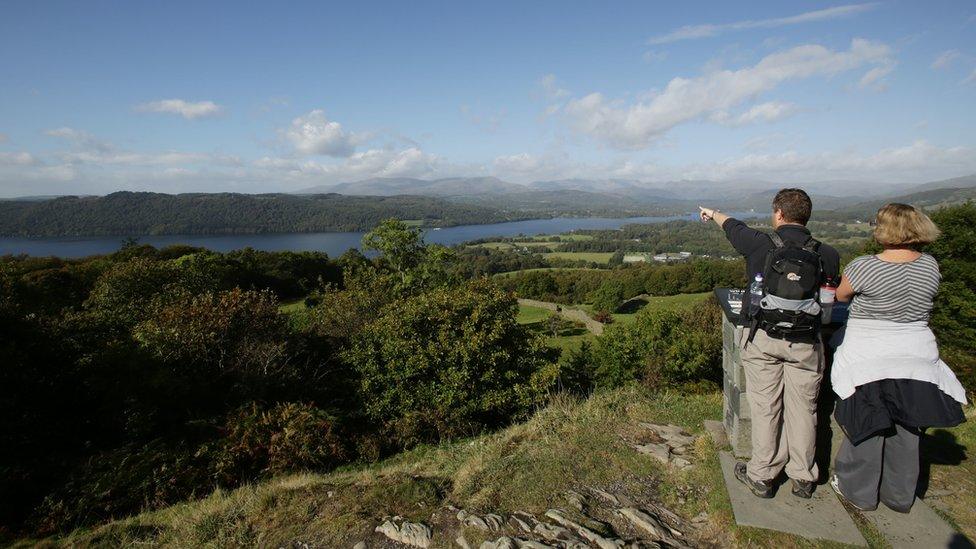
Scotland is currently in its first phase of moving out of lockdown. At the moment, you should still stay at home as much as possible.
You cannot travel away from your home to spend the night elsewhere.
It's not until the third phase that this will be allowed, and at the moment there is no date attached to when we will enter this phase.
If you are leaving your home for leisure just now, you're not supposed to travel further than about five miles.
If you live in Scotland, you should stick to doing what's allowed under the Scottish government's guidelines, external.
Once travelling further than five miles and staying away from home is allowed here, you may be able to travel to other parts of the UK - if the restrictions there permit this.
The other nations in the UK set their own rules about what is allowed and when.
For example, in England people are now free to drive any distance to other destinations within England for leisure, but, as is the case here, they are not supposed to stay overnight away from home (including at any second property they own).
Hotels, holiday resorts, self-catering cottages, Airbnb properties and camping and caravan sites will remain shut in England until at least the beginning of July.
You cannot travel to Wales or Northern Ireland for recreation at the moment either.
But hotels in Northern Ireland are supposed to reopen from 20 July.
I would like to know when caravan holiday parks will open up to holiday home owners. We have our own facilities - so why not? Lyn Quinn, South Lanarkshire
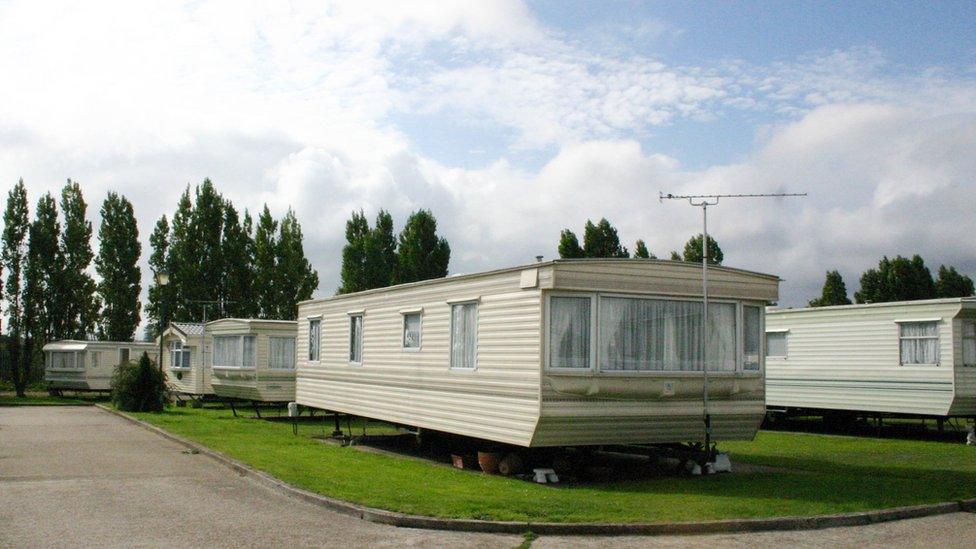
There's no definitive date at this stage, but you are not currently allowed to stay elsewhere overnight, and that includes in caravans or second homes you might own.
It's not until phase three that this will be allowed.
The risk is that if you have the virus you could spread it in whichever part of the country you visit, even if you are staying at your own property and using your own facilities.
The authorities also want to prevent people flocking to tourist hotspots or putting pressure on local health services.
I arrive at Glasgow Airport from Florida on Wednesday. My flights home had been cancelled earlier as lockdown was on. Will I be quarantined? Martha Fraser
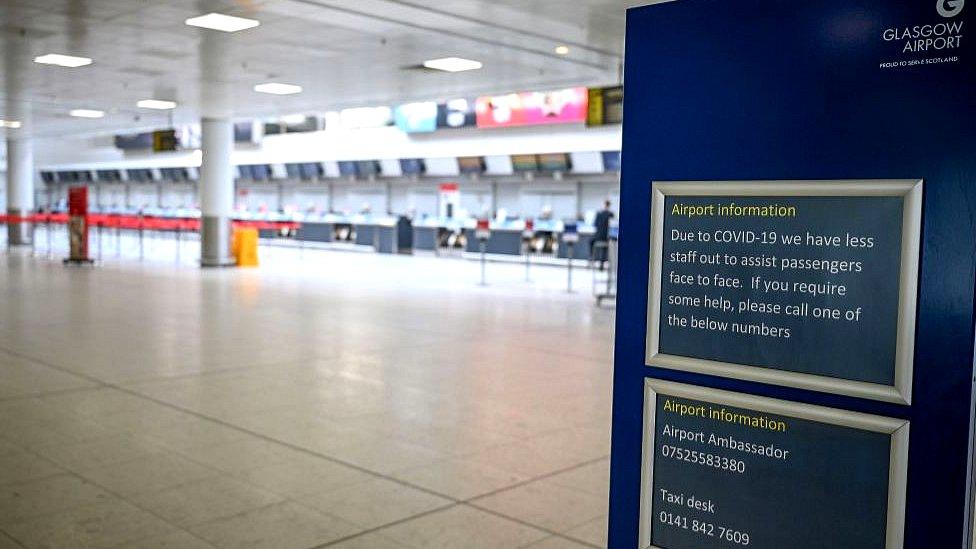
The quarantine rules come into force on 8 June. Most passengers arriving in the UK after this date will have to quarantine for two weeks, external.
They will be required to provide details of where they will spend their 14 days in self-isolation, for example at their home, a hotel or at a friend or relative's address.
Anyone who enters Scotland from abroad and is caught failing to comply with the quarantine faces a £480 fine.
The quarantine measures will be reviewed every three weeks.
When the 14-day quarantine period starts, will the current FCO non-travel rule remain in place to allow people to still claim on their insurance? Alistair Armour, Bridge of Weir
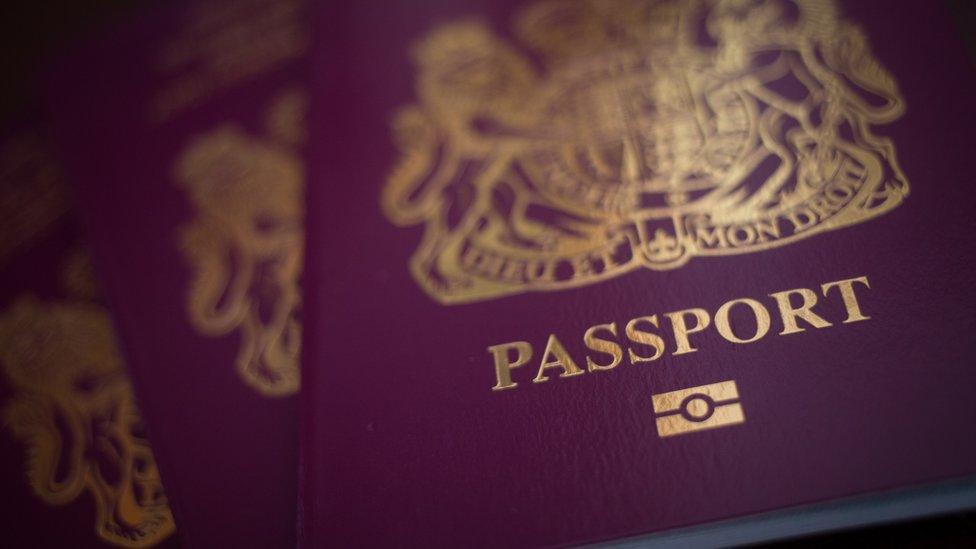
These are two separate issues. The UK government says the reason it is bringing in a quarantine at this stage is because it would not have been effective earlier in the pandemic when infection rates in the UK were higher.
But with cases in the UK now falling, imported cases of the virus pose a more significant threat so it is important to protect the progress that has been made.
The Foreign Office continues to advise against all but essential international travel, but says this position is under continuous review and the guidelines will be relaxed as soon as it is safe to travel.
Insurers and airlines take their cue from the UK government, external, so holidays and flights booked while the advice not to travel is in place are unlikely to be covered by insurance.
If you ignore the advice, you risk invalidating your insurance policy.
However, if you have to make an essential trip, some insurers will still maintain cover.
Your rights can also depend on your choice of airline and the small print of your insurance policy - so do read it carefully.
Some insurers have limited or changed cover for claims relating to Covid-19.
The Association of British Insurers says travel insurance is designed to cover losses incurred by unforeseen circumstances, and coronavirus no longer meets that criteria.
The Foreign Office says if you are planning to book future travel you should get advice first from your tour operator, airline and insurance company on what arrangements are in place if your travel plans get disrupted.


Use the form below to send us your questions and we could be in touch.
In some cases your question will be published, displaying your name, age and location as you provide it, unless you state otherwise. Your contact details will never be published. Please ensure you have read the terms and conditions.
If you are reading this page on the BBC News app, you will need to visit the mobile version of the BBC website to submit your question on this topic.
- Published29 May 2020
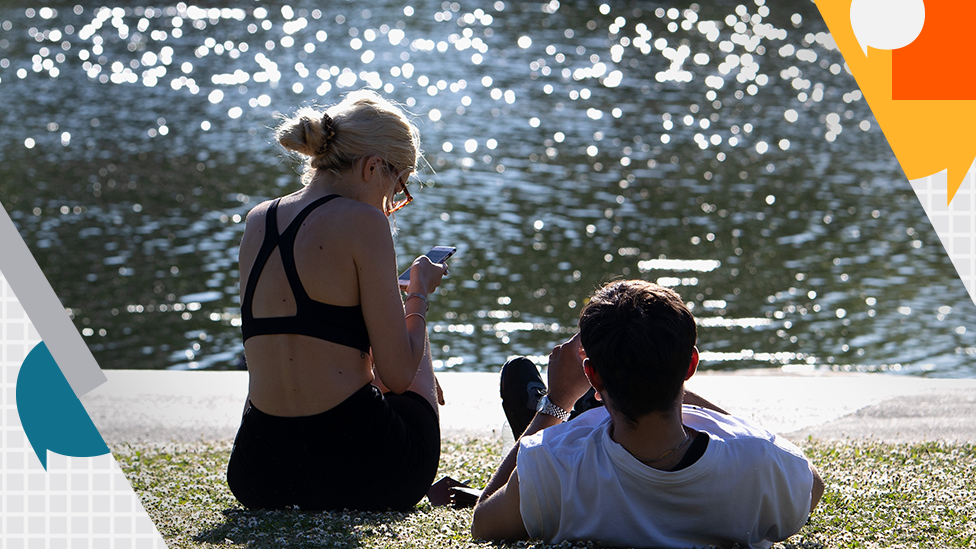
- Published17 August 2021
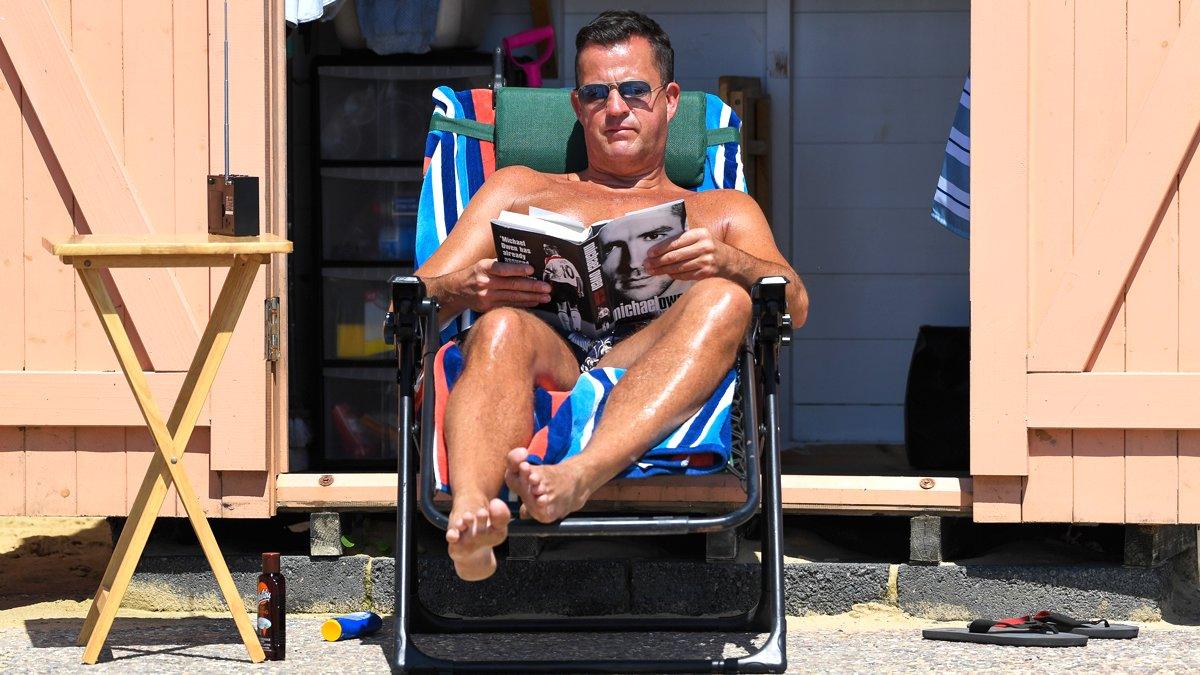
- Published9 July 2020
